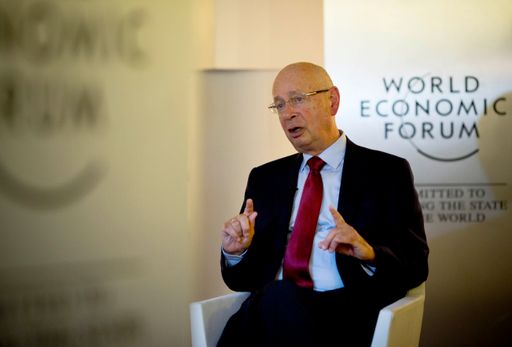Washington, DC, — For decades, Klaus Schwab greeted the world's most powerful with the poise of a monarch and the polish of a Swiss watch. Davos was his court.
The World Economic Forum — his creation, his brand, his stage — turned into a go-to conclave of capitalism where titans mingled with techies and heads of state brushed past climate activists.
Now, Schwab finds himself at the centre of an internal investigation, one triggered by a whistleblower, steered by a Zurich law firm, and punctuated by whispers of intimidation, excess and impropriety. It's the first time the Forum's founder has become its most fragile liability.
The 87-year-old German economist stepped down as executive chairman in April. The announcement, formal and measured, came with the dignity of a founder passing the torch. "Throughout this journey," Schwab said in a written statement, "Hilde and I never used the Forum for personal enrichment."
But behind the glassy calm of the Alpine summit, tensions had been building.
The Swiss law firm Homburger was quietly brought in to lead a governance probe, after internal complaints alleged misconduct stretching back over a decade, including workplace bullying, inappropriate behaviour, and more than $1.1 million in questionable travel expenses.
Preliminary findings reviewed by The Wall Street Journal and Swiss paper SonntagsZeitung were shared confidentially with Forum trustees this summer.
The expenses included luxury trips to the Seychelles, Morocco, and Miami, often with Schwab's wife Hilde, came with what investigators described as "little or no evidence of business being involved."
Hilde chaired the Schwab Foundation but held no formal role within the WEF.
Schwab, through a spokesman, "broadly rejected the findings." He went further, accusing the board of breaching confidentiality after parts of the probe surfaced in the press.
"The board of trustees is in no way honouring the agreement reached on media restraint," he said in a statement. "I feel deceived… I am not available for further investigations."
That line drew a red one between founder and forum. What began as a closed-door review now teeters on the edge of institutional rupture.
"I am willing to defend my interests with all my strength," Schwab warned, "even in the context of a legal dispute."
At the heart of the probe is not just money or travel but culture, conduct, and power. Investigators cited a pattern of behaviour they described as overreaching.
Schwab, they noted, acted as if the Forum were his "fiefdom," often intervening in editorial publications, pressing staff, and directing benefits toward Hilde.
Among the most sensitive allegations: gendered behaviour and inappropriate comments. One example cited in the report is a June 2020 suggestive email Schwab sent to a senior female staffer.

Conflict of interest
Schwab, through his spokesman, said the emails "didn’t reflect his character." He viewed the Forum, he added, "like a family" and saw himself as a "father figure" to many young staffers.
But for some women — particularly those pregnant or over 40 — investigators said career paths were blocked, contributions sidelined, and morale battered.
The picture echoes a 2023 Wall Street Journal expose, which described a "toxic culture" for women and Black employees. The new probe adds further weight and a paper trail.
In one incident, Schwab allegedly pushed Forum researchers to revise content in the influential Global Competitiveness Report. In another, investigators flagged a project at Villa Mundi, a lakeside property near Geneva, as a potential conflict of interest.
Succession planning, too, has grown murkier. Schwab had intended to remain as chair until 2027.
In May, he told The Financial Times that ECB President Christine Lagarde had "discussed cutting short her term" to take the helm. But that possibility now appears remote.
In its only public statement since Schwab’s resignation, the Forum’s board chose to look back, not ahead: "The Board acknowledged the outstanding achievements of the retired Chairman and Founder of the World Economic Forum, Klaus Schwab. He created the leading global platform for dialogue and progress."
That platform now finds itself at a crossroads, confronting an air of uncertainty to its legacy and future trajectory.
Peter Brabeck-Letmathe, the Forum’s vice chairman and former Nestlé CEO, has stepped in as interim chair. A search is underway for a permanent successor.
But even as the legal review nears completion, with final recommendations expected by next month, the Forum's deeper challenge appears to be existential. Rebuilding trust. Reimagining leadership. And disentangling a global institution from the singular figure who defined it for more than 50 years.















